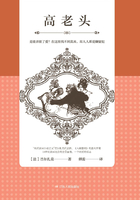1. Every emotion, made up, as it is, of a series of interrelated affective processes having a unitary character, may terminate in one of two ways.
It may give place to the ordinary variable and relatively unemotional course of feelings. Such affective processes that fade out without any special result, constitute the emotions in the strict sense as discussed in the last paragraph. The process may, in a second class of cases, pass into a sudden change in sensational and affective content, which brings the emotion to an instantaneous close; such changes in the sensational and affective state which are prepared for by an emotion and bring about its sudden end, are called volitional acts. The emotion itself together with its result is a volitional process.
A volitional process is thus related to an emotion as a process of a higher stage, in the same way that an emotion is related to a feeling.
Volitional act is the name of only one part of the process, that part which distinguishes a volition from an emotion. The way to the development of volitions out of emotions is prepared by those emotions in connection with which external pantomimetic movements (p. 173) appear. These movements appear chiefly at the end of the process and generally hasten its completion; this is especially true of anger, but to some extent also of joy, care, etc. Still, in these mere emotions, the changes in the train of ideas which are the immediate causes of the momentary completion of the emotion in volitions and also the characteristic feelings attending these changes, are all wanting.
This close interconnection of volitional acts with pantomimetic movements necessarily leads us to look upon those volitions which end in certain bodily movements resulting from the preceding train of ideas and feelings, that is, those [p. 184] ending in external volitional acts, as the earliest stages in the development of volitions. The so-called internal volitional acts, on the other hand, or those which close simply with effects on ideas and feelings, appear in every case to be products of a more highly developed intelligence.
A volitional process that passes into an external act may be defined as an emotion which closes with a pantomimetic movement that has, in addition to the characteristics belonging to all such movements and due to the quality and intensity of the emotion, the special property of producing an external effect which removes the emotion itself. Such an effect is not possible for all emotions, but only for those which the very succession of component feelings produces feelings and ideas which are able to remove the preceding emotion. This is, of course, most commonly the case when the final result of the emotion is the direct opposite of the preceding feelings. The fundamental psychological condition for volitional acts is, therefore, the contrast between feelings, and the origin of the first volitions is most probably in all cases to be traced back to unpleasurable feelings that arouse external movements whose results are contrasted pleasurable feelings. The seizing of food to remove hunger, the struggle, against enemies to appease the feeling of revenge, and other, similar processes are original volitional processes of this kind. The emotions coming from sense-feelings, and the most wide spread social emotions, such as love, hate, anger, and revenge, are thus both for men and animals the common origin of will. A volition is distinguished in such cases from an emotion only by the fact that the former has added to its emotional components an external act that gives rise to feelings which, through contrast with the feelings contained in the emotion, bring the emotion itself to an end. The execution of the volitional act may then lead directly, as was originally [p. 185] always the case, or indirectly through an emotion of contrasted affective content, into the ordinary quiet flow of feelings.
3. The richer the ideational and affective contents of experience, the greater the variety of the emotions and the wider the sphere of volitions.
There is no feeling or emotion that does not in some way prepare for a volitional act or at least have some part in such a preparation. All feelings, even those of a relatively indifferent character, contain in some degree an effort towards or away from some end. This effort may be very general and aimed merely at the maintenance or removal of the present affective state. While volitions appear as the most complex form of affective processes, presupposing all others --- that is, feelings and emotions -- as their components, still, we must not overlook the fact that single feelings continually appear which do not unite to form emotions, and emotions appear which do not end in volitional acts. In the total interconnection of psychical processes, however, these three stages condition one another and form the related parts of a single process which is complete only when it becomes a volition.
In this sense a feeling may be thought of as the beginning of a volition, or a volition may be thought of as a composite affective process, and an emotion may be regarded as an intermediate stage between the two.
4. The single feelings in an emotion that closes with a volitional act are usually far from being of equal importance. Certain ones among them, together with their related ideas, are prominent as those which are most important in preparing for the act. Those combinations of ideas and feelings which in our subjective apprehension of the volition are the immediate antecedents of the act, are called motives of volition. Every motive may be divided into an ideational and [p. 186] an affective component.
The first we may call the moving reason, the second the impelling force of action. When a beast of prey seizes his victim, the moving reason is the sight of the same, the impelling force may be either the unpleasurable feeling of hunger or the race-hate aroused by the sight.















